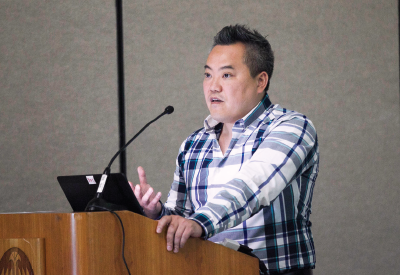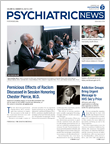Identity can be a source of both emotional adversity as well as strength for ethnic minority college students, said speakers at APA’s 2017 Annual Meeting in San Diego.
Many of those young people not only face discrimination on campus but also feel that they don’t belong there, said session leader Annelle Primm, M.D., M.P.H., the senior medical advisor to the Steve Fund, a nonprofit organization focusing on the mental health of college students of color.
Yasmin Owusu, M.D., counsels students at Stanford University, her alma mater. She is one of the founders of the Black Caps, a group of black mental health professionals who offer services to African-American, African, and Caribbean students. Owusu noted that she is the only psychiatrist in the group. She finds recurring themes among her patients: depression, posttraumatic stress disorder, academic stress, financial strain, racial micro-aggressions, and the “imposter syndrome.”
Her group’s outreach efforts include both in-person and electronic approaches, she said. “But word of mouth counts for a lot.” Many of her black patients prefer psychotherapy rather than pharmacotherapy, she has found.
Members of minority groups have a wide range of attitudes toward and response to mental health and mental illness, added Steve Koh, M.D., M.P.H., M.B.A., an assistant clinical professor of psychiatry at the University of California, San Diego, who discussed factors affecting Asian Americans.
“Asian Americans are a diverse group, coming from different countries with different cultures,” said Koh, who was born in Korea. Korean-American students face intense cultural pressure to succeed academically and professionally, which, combined with stigma, may keep them away from mental health services. Seeking help outside the extended family or the church is seen as a failure. “They tend not to access community services.”
Compared with other students, Hispanic students have a higher risk of depression and anxiety and tend to seek help less often, said Ludmila De Faria, M.D., a clinical assistant professor of psychiatry and a staff psychiatrist at the Florida State University Student Health Center in Tallahassee and chair of APA’s Caucus on College Mental Health. “Many Hispanic students face the added stress of being one of very few Hispanic students on campus.”
Minority students of all backgrounds also face broader problems including negative campus attitudes about mental health, family financial constraints that may preclude buying health insurance if it is not required, and a lack of culturally appropriate care options, said De Faria. Often counseling staff don’t understand the experiences of minority students and write them off as “difficult” patients who need to be passed off to some other part of the mental health system—or out the door.
Being black, Hispanic, Asian, or Native American and also gay or lesbian can compound the stresses for these students, said Debbie Carter, M.D., an associate professor and director of Culturally Informed Education in Psychiatry at the University of Colorado Denver. They may face a “double-outsider” status as racial minorities in the LGBTQ world and as sexual minorities within their ethnic group.
American-Indian students carry a long burden of “cultural genocide,” said Mary Hasbah Roessell, M.D., of Santa Fe, N.M. Attempts at forced assimilation, carried out at boarding schools half a continent away from their homes, left a legacy of intergenerational trauma that still plays out today. Exposure to violence is high among young American Indians. About a third drop out before finishing high school, and just a fourth graduate ready for college. However, tribal colleges support their cultural knowledge and identity, helping bolster their success academically and afterward.
“Psychiatrists working with these young people must have self-awareness of their own biases and how they create barriers to establishing rapport with patients,” said Roessell. “And they must understand the depth of the impact of the history of indigenous peoples and their education.”
“We need to create a space for race in our practice, acknowledging that racial trauma is real,” said Owusu. She agreed with the other panelists that strengthening a sense of ethnic identity was a protective factor for these students and that there is an unmet need for more members of minorities to become psychiatrists, psychologists, and other mental health professionals. ■
The Steve Fund’s website can be accessed
here.

